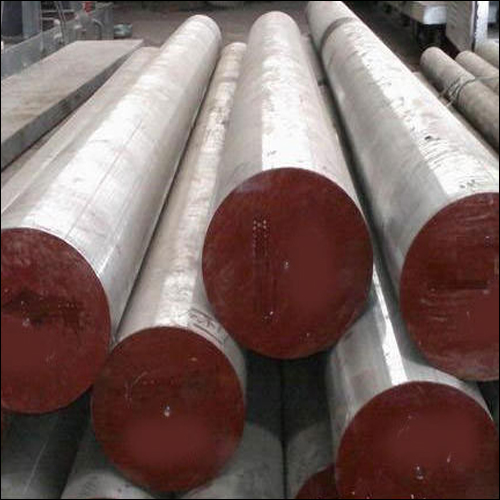Chemical Composition :
| C |
Mn |
Si |
Cr |
Mo |
V |
P |
Ni |
Cu |
S |
| .30-.45 |
.20- .50 |
.80-1.20 |
4.75-5.50 |
1.10-1.75 |
.80-1.20 |
.03 |
.3 |
.25 |
.03 |
Equivalent Grades :
- AFNOR Z 40 COV 5
- DIN 1.2344
- UNI KU
- JIS SKD61
- SS 2242
- B.S. BH 13
- ASTM A681
- FED QQT570
- SAE J437
- SAE J438
- SAE J467
- UNS T20813
- AMS 6408
Fabrication and Heat Treatment Machinability :
The machinability rate of H13 tool steels is nearly 75% of that of the W
group tool steels. Forming: H13 tool steels are formed by using conventional
methods. Welding H13 tool steels are readily weldable.
Heat Treatment : H13 tool steels are preheated to 816°C (1500°F).
Then the steels are directly heated by increasing the temperature to 1010°C
(1850°F) followed by holding for 15 to 40 mins. The steels are then air
quenched.
Forging : H13 tool steels are forged at 1079°C (1975°F).
For this type of steels, forging below 898°C(1650°F) is not
preferable.
Cold Working : Cold working may be carried out on H13 tool steels
using conventional methods. Annealing: H13 tool steels are annealed at 871°C
(1600°F) and slowly cooled at 4°C (40°F) in the furnace.
Tempering : Tempering is carried out in H13 tool steels from 538 to
649°C (1000 to 1200°F) to obtain Rockwell C hardness of 53 to 38.
Double tempering can also be performed in these steels for every one hour at
the preferred tempering temperature. Applications: H13 tool steels are
suitable for forming extrusion dies.
Additional Information : Item Code : H-13




